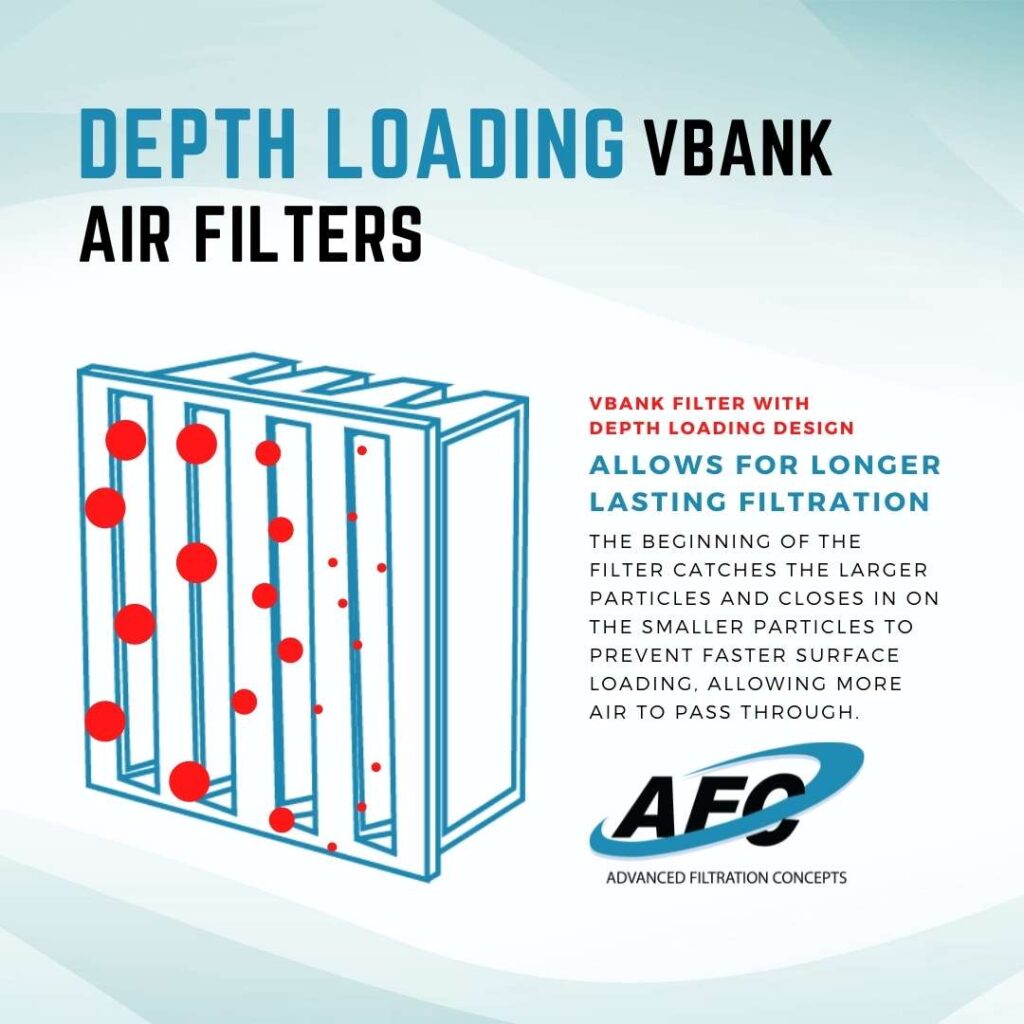Depth loading air filters are designed to capture larger particles on the surface and smaller particles the further in. In air filtration, there are many different types of filters. We will be focusing on depth loading filters and how they differ from surface loading filters. Depending on the situation, one may be better than the other. So, it’s good to know how a depth loading filter can benefit your situation.
Depth Loading Air Filters
Depth loading air filters are designed to do just that. They load up particles in stages to allow for air passages, thus decreasing restriction. They allow for longer lasting filters, saving you time and money. The beginning of the filter catches the larger particles and closes in on the smaller particles. This is designed prevent fast surface loading, therefore, allowing more air to pass through. This also allows for longer lasting filtration.
Surface Loading Filters
Surface loading filters, on the other hand, capture all the particles on the face of it. Whether it be small particles, or larger, it doesn’t discriminated. However, this means that the filter can get clogged up a lot faster, thus restricting airflow. This, in turn, requires the air filters to be replaced more frequently, causing an increase in cost and downtime.
The Drawback of Clogged Air Filters
A clogged air filter full of dirt causes your HVAC system to run longer in order to keep the temperature constant. The department of energy (doe) has estimated that once an air filer becomes clogged, the HVAC system is using 15% more energy than when the air filter was new. This inefficiency increases quickly as the filter becomes more and more clogged. Replacing your air filters often is important to keeping your equipment running efficiently and effectively. It also keeps costs down in the long run. But, how much should you be spending on your air filters up front? It is true that depth loading filters are more costly up front than surface loading filters, but in the long run, the math proves it to be more cost affective, saving you more down the line.
Conclusion
When it’s time to replace your air filters, it’s important to ask the right questions. Like how much can upgrading air filters save you in the long run or if your machine can handle higher efficiency air filters. Advanced Filtration Concepts are experts in the commercial and industrial air filter industry and can answer any questions you may have.

